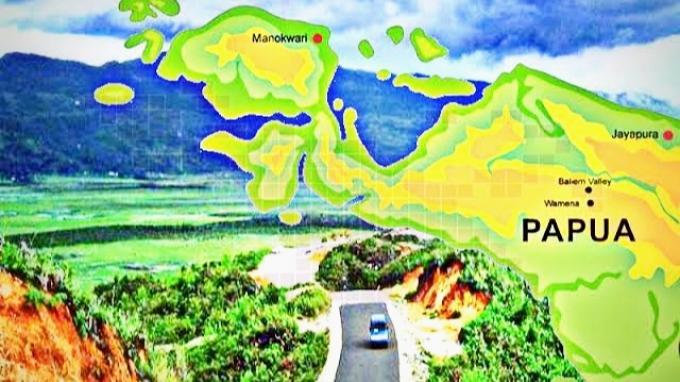Supporting Papua Special Autonomy Development on Target
Not half-heartedly, tightening supervision of the realization of funds in the second volume of special autonomy was also carried out by establishing an internal supervisory body involving ministries and other related institutions to ensure that the use of Special Autonomy funds was truly for the welfare of the people of Bumi Cenderawasih.
Member of BP3OKP for Southwest Papua Province, Otto Ihalauw, explained that his party’s task is to ensure synchronization, harmonization, evaluation and coordination which includes planning, implementation, as well as guidance and supervision to accelerate the development and implementation of Special Autonomy in the Southwest Papua region.
Based on this series of tasks, of course the BP3OKP itself has the responsibility to actually supervise the realization of the Special Autonomy funds so that the use of the funds provided by the government can directly touch and improve the welfare of the community.
Apart from having the duties and responsibilities to oversee Special Autonomy, BP3OKP is also tasked with overseeing other development originating from ministries or other related institutions as long as it is related to development in Bumi Cenderawasih. So it is not just about overseeing Special Autonomy, but this agency is also tasked with supervising and overseeing other development activities in Papua.
Wahana Visi Indonesia (WVI) continues to encourage the acceleration of improving the welfare of the entire community, especially OAPs, through steps to optimize the management of special autonomy funds (Otsus) so that they can become more targeted.
This contribution is implemented through the United States Agency for International Development (USAID) Collaboration Program. Regarding this, the Head of the USAID Collaboration Program, Caroline Tupamahu, explained that the program was born to facilitate Papuans to better understand Law Number 2 of 2021.
This is because a number of changes in regulations and how the budget distribution scenario is implemented are the points that make Special Autonomy in the current period different. Therefore, the USAID Collaboration program itself is the result of joint collaboration with the Ministry of Bappenas which is supported by the American people through the US Agency for International Development.
Since 2022, the program has been running in Papua and West Papua by taking a two-way approach from the local government side (supply side) and from the community side (demand side).
On the same occasion, Head of the Special Autonomy Evaluation and Reporting sub-section of the Special Autonomy Implementation Administration Bureau – West Papua Province Regional Secretariat, Fransina Kaaf said that there were two learning modules prepared by USAID Collaboration in its efforts to further improve capabilities in managing Papua’s Special Autonomy.
USAID Collaboration has also collaborated with the Papua and West Papua Province Bappeda by continuing to provide training and assistance to as many as 505 State Civil Apparatus (ASN). Because Otsus has currently changed the rules, so not everyone understands these changes. So initially all of them were trained to understand the new Special Autonomy regulations first.
Then, it is then facilitated to be able to train all other Regional Apparatus Organization (OPD) colleagues on how to plan well, on time and on target.
One of the community mobilizers, Selviana, revealed that the USAID Collaboration Program had indeed had a very good impact on the community, especially for OAP themselves in understanding their rights regarding how to manage Special Autonomy funds.
The existence of the USAID Collaboration Program also provides an opportunity for the entire community to assess how the Special Autonomy program has been running so far. This also includes holding two-way dialogue with program implementers from local regional government representatives.
The proof is that in several USAID Collaboration activities, residents and local governments can immediately apply practical solutions to the problems they find. The selected driving figures not only represent the village, women and young people, but after attending the training they can also get the opportunity to represent their region in Development Planning Deliberation (Musrenbang) activities.
WVI National Director, Angelina Theodora said that as an organization, they continue to focus on appreciating USAID’s support in the USAID Collaboration program and hope that the management of Special Autonomy funds can be right on target to improve the welfare of all children in Papua.
The government has been continuing to intensify the development of Special Autonomy in Papua. Therefore, it is very important to increase supervision and tighten supervision, especially regarding the realization of funds so that the implementation of development activities in Special Autonomy for Papua can take place on target.
